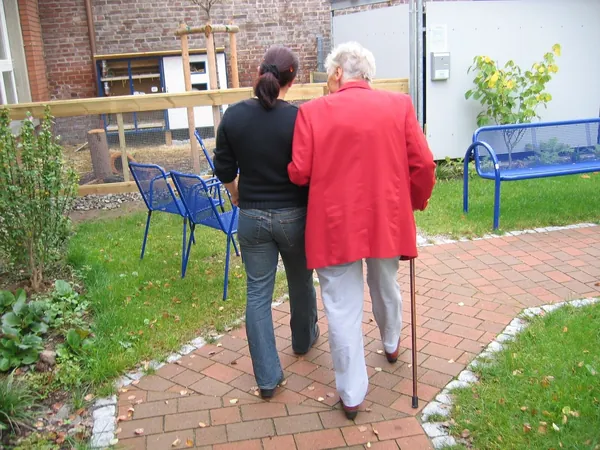
Urgent Review Needed: Antidepressants in Aged Care Homes Linked to Increased Falls
2025-04-11
Author: Ming
Researchers are sounding the alarm over the use of psychotropic medications in aged care homes, urging a critical review of their impact on seniors' health and safety. These drugs, while often prescribed to combat mental health issues, may be causing more harm than good by increasing the risk of dangerous falls.
A recent study published by the Australian Institute of Health Innovation at Macquarie University reveals that a staggering 40% of residents in aged care facilities were prescribed "potentially inappropriate" psychotropic medications over a two-year span. Alarmingly, 70% of these individuals suffered at least one fall, with many requiring hospitalization.
The Dangers of Psychotropic Medications
Antidepressants and antipsychotics, commonly administered to treat anxiety, sleep disturbances, and depression, have a serious side effect: they affect the central nervous system, significantly increasing the risk of falls among older adults. According to Ph.D. student and lead author Narjis Batool, falls can lead to severe injuries, including fractures and head trauma.
Call for Medication Reviews
The paper advocates for routine medication reviews within aged care homes. Batool emphasizes that these reviews can help identify residents who might have been on their medications longer than necessary, thereby reducing the likelihood of falls. She also suggests that facilities should implement staff training to better recognize residents at risk of falling and adapt prevention strategies accordingly.
Strengthening Aged Care through Prevention
Dr. Nasir Wabe, the senior author of the study, notes that falls are among the most pressing challenges faced in aged care. He points out that since medications are a modifiable risk factor for falls, targeted interventions could play a pivotal role in safeguarding residents.
The Australian government has already taken steps to improve medication safety with initiatives such as embedding pharmacists in aged care settings and promoting Residential Medication Management Review programs. Wabe encourages facilities to take full advantage of these measures.
A Deeper Look into Aged Care Residents' Health
This latest research offers a more in-depth analysis than previous studies by focusing on the actual medications administered to residents rather than just those prescribed. Batool highlights that 54% of those using potentially inappropriate psychotropic medicines experienced some form of injury from a fall, with 30% requiring hospital treatment.
Exploring Alternatives to Medication
The findings stress the urgent need for increased awareness and implementation of non-medication approaches to address mental health issues in aged care settings. Options such as behavioral therapies, social interactions, and group activities could provide effective alternatives without the associated risks of psychotropic drugs.
As we continue to navigate the complexities of elderly care, the message is clear: prioritizing the safety and well-being of our seniors requires a comprehensive re-evaluation of medication practices, alongside innovative, holistic care strategies.


 Brasil (PT)
Brasil (PT)
 Canada (EN)
Canada (EN)
 Chile (ES)
Chile (ES)
 Česko (CS)
Česko (CS)
 대한민국 (KO)
대한민국 (KO)
 España (ES)
España (ES)
 France (FR)
France (FR)
 Hong Kong (EN)
Hong Kong (EN)
 Italia (IT)
Italia (IT)
 日本 (JA)
日本 (JA)
 Magyarország (HU)
Magyarország (HU)
 Norge (NO)
Norge (NO)
 Polska (PL)
Polska (PL)
 Schweiz (DE)
Schweiz (DE)
 Singapore (EN)
Singapore (EN)
 Sverige (SV)
Sverige (SV)
 Suomi (FI)
Suomi (FI)
 Türkiye (TR)
Türkiye (TR)
 الإمارات العربية المتحدة (AR)
الإمارات العربية المتحدة (AR)